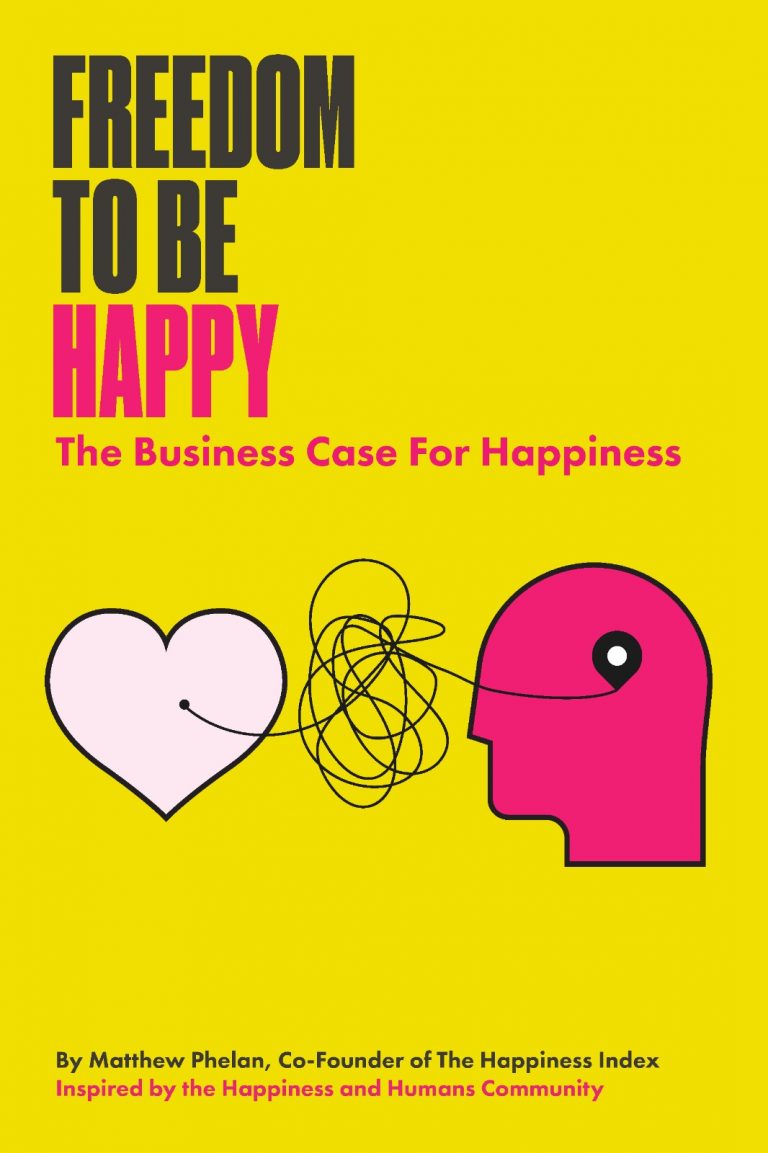In the past year, more people than ever before have stopped to think about what makes them happy? Matt Phelan’s book is well timed to help all who are considering that existential question. But this book is much more than fluffy introspection of personal fulfilment.
Phelan is the co-founder of The Happiness Index, which now operates in more than 90 countries around the world. The case he makes goes far beyond the time-worn debate on engagement and satisfaction. He makes a powerful business case for happiness. He sets out to prove that contented colleagues deliver a bottom line that’ll make all our hearts soar.
This book is an admirable, accessible, easy read. It is not weighed down or complicated by over intellectual argument. That’s not to say it lacks substance.
It begins with a journey through the history of happiness, citing the work and thoughts of Aristotle, Freud and Confucius. It guides us through the three sources of happiness – flow meaning and pleasure.
It explains to us the neuroscience and the role of dopamine, oxytocin, serotonin and endorphins. But where it really hits the spot is when it analyses the drivers of happiness in employee engagement.
It cites evidence that would suggest that if there were two hospitals, one with happy staff and one with unhappy staff, the miserable medics would preside over higher mortality. The contented carers will save more lives.
The number one influence on employee happiness is relationships with our colleagues. The most effective tactic to fill our co-workers with joy is regular feedback and verbal recognition. People don’t quit because work is too hard. They quit because it’s not hard enough. Most are happier when challenged. What makes them unhappy is bad leaders, dysfunctional teams and conflict.
Matt Phelan reveals that engineers were the unhappiest employees in the world – a right miserable bunch. That’s until COVID came along. The isolation of home working turned them into jolly hermits, left alone crouched over their CAD software in the shadows of their bedrooms.
COVID also saw an increase in some key contentment drivers, especially the willingness to share and feedback.
Apparently, smaller businesses are universally happier places to work that the big corporates. The books also explores how attitudes to happiness vary greatly from nation to nation around the world.
Phelan claims that money only makes you happy up to a point. He cites evidence that shows no matter how much people earn they think a little bit more will dial up their delight. It doesn’t.
Matt Phelan has produced a business romp that entertains, informs and challenges our thinking. It’s testimony to how the keys to happiness are gobsmackingly simple. But often ignored. It’s also a welcome reminder of the damage that’s done to morale and profit by corporate curmudgeons.
This book is a thought provoking read. It might not make you truly happy, but it will challenge you to think differently about the value of spreading a little joy.
Atholl Duncan, Chair – Black Isle Group






